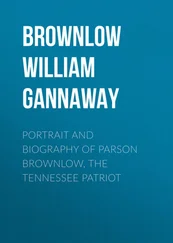A seven-year-old with such attitudes and interests in our own times would probably find them beaten out of him at school, and indeed that could as easily have happened in the 1760s. William had the advantage of mixing almost exclusively with his own siblings, his tutor and adult family members, most of whom encouraged his political interest. The poet William Hayley reported when William was a boy of fourteen that he ‘eclipsed his brother in conversation’. 22It is hard to think that he was not sometimes an irritation to his brothers and sisters; as the historian J. Holland Rose commented, ‘the boy … narrowly escaped being a prodigy of priggishness’. 23His narrow escape seems to have been made possible by an easygoing disposition and pleasant temperament, which made it easier for him to win friends in a small circle. He was also a rather sickly child, with frequently recurring problems in the nose and throat, and many coughs and colds. His fragility probably helped the other children to put up with his bookish ways.
Father and son showed a deep attachment to each other. ‘If I should smoke,’ the elder Pitt wrote, ‘William would instantly call for a pipe.’ 24He would in later years describe William as ‘the hope and comfort of my life’. 25In 1772, when Hester took the three eldest children to Hayes and left William and his younger brother with their father at Burton Pynsent, the elder Pitt wrote:
My dearest life will read with joy that the boys go on well. I believe William’s sequestration , as he learnedly terms it, agrees better with his contemplative constitution than more talk and more romps. Airing, literature, the arts, tea-table, sober whist and lecturing Papa for staying out too late, together with the small amusement of devouring a joint of mutton, or so, before I can look about, make up our daily occupations. 26
His wife replied: ‘I do not in the least wonder that the style of William’s present life agrees with him. It is certainly not better suited to the state of his constitution, than to the fineness of his mind, which makes him enjoy with the highest pleasure what would be above the reach of any other creature of his small age.’ 27
In 1772 William even wrote a play, performed by the Pitt children, which was wholly political in content and eerily foreshadowed the Regency crisis in which he would play the real lead role seventeen years later. It is obvious that he showed academic gifts and political interest from an exceptionally early age, encouraged and nurtured by the adults around him, and that he enjoyed a pleasant and sheltered upbringing in the midst of a loving family. In all these respects he was very fortunate, but he was not unique. There must have been something more to his formative years, even before he went to university at the age of fourteen, to equip him to carry out the functions of Prime Minister at the age of twenty-four.
There were at least three factors which, in the formation of the young William Pitt’s personality and opinions, were not only fortunate but truly unique. The first was that a father who had himself dominated the House of Commons and presided over a government took an active, usually daily, role in his education. At no other time in British history has the head of one administration acted as the tutor of another. A home education seems to have been well suited in any case to a child of William’s temperament and health, but Mr Wilson’s tuition was frequently supplemented by the ministrations of the elder Pitt. Bishop Tomline, in his surprisingly uninformative biography of the younger Pitt written shortly after his death, reports that ‘when his lordship’s health would permit, he never suffered a day to pass without giving instruction of some sort to his children; and seldom without reading a chapter of the Bible with them’. 28While the elder Pitt seems to have been attentive to all his children, he particularly enjoyed passing on to William examples of eloquence from contemporary or classical writers and speakers, and asking him to study them. He taught him to speak in a clear and melodious voice by making him recite each day passages from the best English poets, particularly Shakespeare and Milton. Another biographer of the younger Pitt, Lord Stanhope, wrote the following with the advantage of his father having spoken to Pitt himself:
My father had the honour to be connected in relationship with that great man – and, as such, he had the privilege of being in the house with him sometimes for many weeks together. Presuming on that familiar intercourse, he told me, he ventured on one occasion to ask Mr. Pitt by what means – by what course of study – he had acquired that admirable readiness of speech – that aptness of finding the right word without pause or hesitation. Mr. Pitt replied that whatever readiness he might be thought to possess in that respect, he believed that he derived it very much from a practice his father – the great Lord Chatham – had recommended to him. Lord Chatham had bid him take up any book in some foreign language with which he was well acquainted, in Latin, Greek, or French, for example. Lord Chatham then enjoined him to read out of this work into English, stopping where he was not sure of the word to be used in English, until the right word came to his mind, and then proceed. Mr. Pitt states that he had assiduously followed this practice. At first he had often to stop for a while before he could recollect the proper word, but he found the difficulties gradually disappear, until what was a toil to him at first became at last an easy and familiar task. 29
By the time he arrived at Cambridge in 1773, William could apparently read into English six or seven pages of Thucydides, without previous study of it and with barely a mistake. He may have been educated at home but he had in effect attended a master school in the use of language and its delivery. In addition he showed a strong early aptitude for mathematics. Uninhibited by peer pressure and required from the outset to meet adult standards, he developed early on a highly unusual ability to speak clearly, structure an argument, and think on his feet.
Secondly, he must have realised at a very early age that he belonged to a father and a family who stood apart from and were treated differently to everyone else. His father had become a national institution, and was greeted when he travelled with greater reverence than anyone else outside the Royal Family. When the Pitt family set off for their summer break by the sea in Weymouth or Brighthelmstone (modern-day Brighton) or Lyme Regis, bells were rung in their honour and flowers strewn before them. Travelling to Weymouth by coach in 1766, the family heard the bells of Yeovil ringing in their honour as they passed, and a deputation of Mohican chiefs, on their way to London with a petition, were waiting there to greet them. In an age when the inheritance of names and traits counted for more than it does today, the younger Pitt always knew that he was the son of a very great man, and that everyone else knew it too.
The third unique aspect of the younger Pitt’s early life is more complex, more debatable, but no less compelling. In the years 1765 to 1768 the career of his father took a series of dramatic turns, briefly for the better and then decidedly for the worse. At this time the elder Pitt took a series of decisions, some of which would have seemed wise at the time, but many of which must have appeared almost immediately to have been risky or foolish. While a child between the ages of six and nine cannot normally be expected to appreciate the finer points of the political events of the day, it is hard to imagine that this boy, with his precocious interest in politics, did not absorb some deep and lasting lessons from what happened. His father was in this period not only his tutor but also a living daily example of the perils of politics.
Читать дальше












